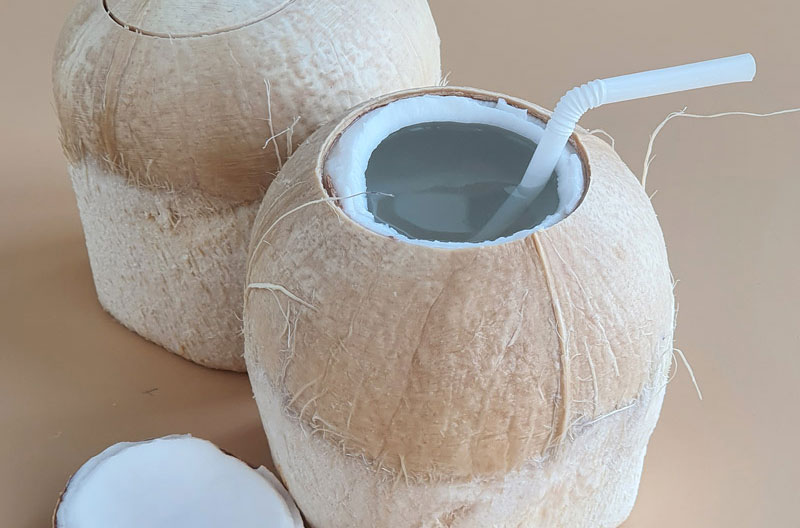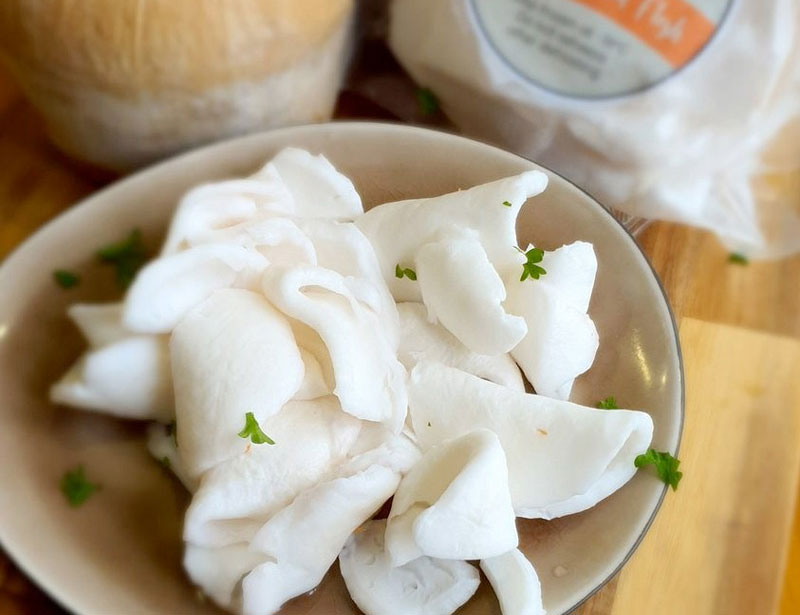


Coconut trees provide food, fuel, cosmetics, folk medicine and building materials, among many other uses:
1. Coconuts are distinct from other fruits because they contain a large quantity of clear liquid, called coconut water or coconut juice.
2. The inner flesh of the mature seed, as well as the coconut milk extracted from it, form a regular part of the diets of many people in the tropics and subtropics.
3. Mature, ripe coconuts are used as edible seeds, or processed for oil and plant milk from the flesh, charcoal from the hard shell, and coir from the fibrous husk.
4. Dried coconut flesh, copra, and the oil and milk are used in cooking, soaps and cosmetics.
5. Sweet coconut sap is made into drinks, palm wine or coconut vinegar.
6. The hard shells, fibrous husks and long pinnate leaves are used as material to make a variety of products, furnishing and decoration.
Not to be confused with coconut milk, coconut water is the clear, sweet, crisp and refreshing liquid. It is a great natural substitute to soft drinks, sugary juices, or sports drink.
Coconut water is rich in carbohydrates and electrolytes such as potassium, sodium, and magnesium. Because of this electrolyte composition, there is a lot of interest in using coconut water to treat and prevent dehydration.
Lots of people know coconut oil as an alternative source of fat, but few tried coconut flesh for cooking. The raw coconut meat is juicy and tender, though and fibrous or thick and crunchy, depending on its breed and maturity.
WellB packs and freezes fresh local young coconuts meat, keeping them flavourful and versatile in the kitchen.
Serving size: 100g
Calories: 110
| Daily value | % Daily Value | |
| Total Fat | 6g | 8% |
| – Saturated Fat | 5g | 25% |
| – Trans Fat | 0g | |
| – Cholesterol | 0mg | 0% |
| Sodium | 15mg | 1% |
| Total Carbohydrates | 13g | 5% |
| – Dietary Fibers | 6g | 2% |
| – Total Sugars | 1g | |
| – Added Sugar | 0g | 0% |
| Protein | 2g |
| Vitamin D | 0mg | 0% |
| Calcium | 21mg | 2% |
| Iron | 0.5mg | 2% |
| Potassium | 380mg | 8% |
- The % Daily Value (DV) informs how many nutrients in a serving of food contribute to a daily diet.
General nutrition advice is 2,000 calories a day.
Coconut flesh is packed with vitamins, minerals and high protein (for a fruit!) at 4 grams/cup, along with most amino acids used for protein formation. That makes it an excellent food or drink between intervals.
It’s also high in threonine, which is great for liver, muscle building, nervous system, cardiovascular system and collagen in the body.
It also provides a good amount of iron, folate and potassium!
High-fiber content acts as prebiotic, it regulates the bowel activity, feeds the good bacteria in the intestines, improves digestion and helps the absorption of key nutrients.
The coconut meat fibers also boost the immune system, helping to fight parasites infestations, fungi and yeasts.
Coconut flesh is low on the glycemic index, which means it slows the rate of carbs turning into sugar. It then makes you feel full longer and is low in calories!
Coconut meat saturated fats are the healthy medium-chain fatty acids type, which benefit bones instead of harming them.
The saturated fat in coconut flesh reduces the bad (Low-Density Lipoprotein) cholesterol and increases the good (High-Density Lipoprotein) cholesterol.
Because of the way your body processes coconut meat, it is very easy to digest compared to animal meat, eggs, and even some nuts, seeds and beans!
And it just tastes great.
It is also very versatile in the kitchen, whether raw in salads or fried for snacks. It replaces or complements potatoes and meats in a lot of dishes!
But don’t take our work for it, just check out some of our recipes:
